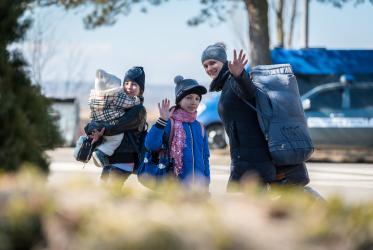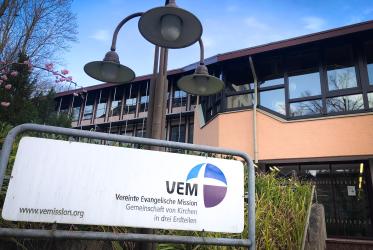Today, the 1st conference of States Parties to the Arms Trade Treaty (24-27 August) commences in Cancun, Mexico. While the diplomats meet and talk, conflicts and armed violence fuelled by unregulated flows of weapons and ammunition will continue raging around the globe.
In South Sudan, for example, since December 2013 conflict sustained by continuing arms transfers to both South Sudanese Government and opposition forces has resulted in a death toll of almost 50,000 people, with thousands more injured and 3.2 million internally displaced.
Much of the arms trade that sustains this and other conflicts, as well as armed violence by criminal gangs, is carried out in the shadows, without effective oversight. Arms traders continue to operate with impunity, and lax on non-existent regulation make it almost impossible to tell in whose hands the weapons and ammunition they trade will ultimately end up. Local churches in many affected communities around the world witness daily the terrible human toll of societies awash with weapons. In the name of God, it has to stop.
For this reason, the World Council of Churches has long supported the introduction of globally binding regulation of the international trade in conventional weapons. And for this reason, we celebrate the entry into force of the Arms Trade Treaty (ATT) – which for the first time creates a normative framework for such regulation. The ATT’s entry into force on 24 December 2014 – only about 18 months after it was opened for signature – was very swift compared to many other such treaties. (So far, 72 States have ratified the treaty, and there are a further 59 who have signed but not yet ratified it.) Now, the challenge is to put it into effect.
And that is now the task of this First Conference of States Parties (CSP) of the ATT – to create the rules and procedures that will ensure that the ATT is strongly implemented, for a weakly implemented treaty is hardly worth the paper it is written on. So while many of the discussions in Cancun this week will dwell on seemingly dry technical details – of reporting procedures, financial mechanisms, decision-making processes, civil society participation, and secretariat structure – the outcomes of these discussions will determine whether or not the ATT makes a difference in the lives of the millions of people affected by armed violence. The participants in the CSP, whether representing governments, UN or non-governmental organizations – have a duty to ensure that the ATT can make that difference.
---
The Control Arms Coalition, in which the WCC participates, will be providing regular updates and analysis from Cancun via their website and on Twitter.







